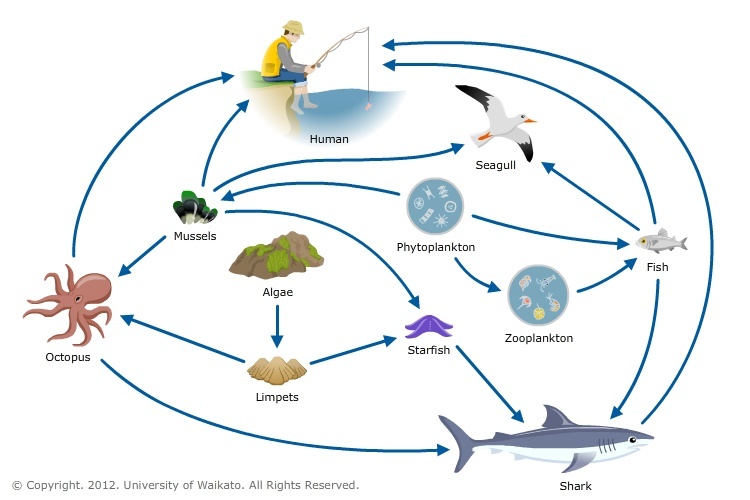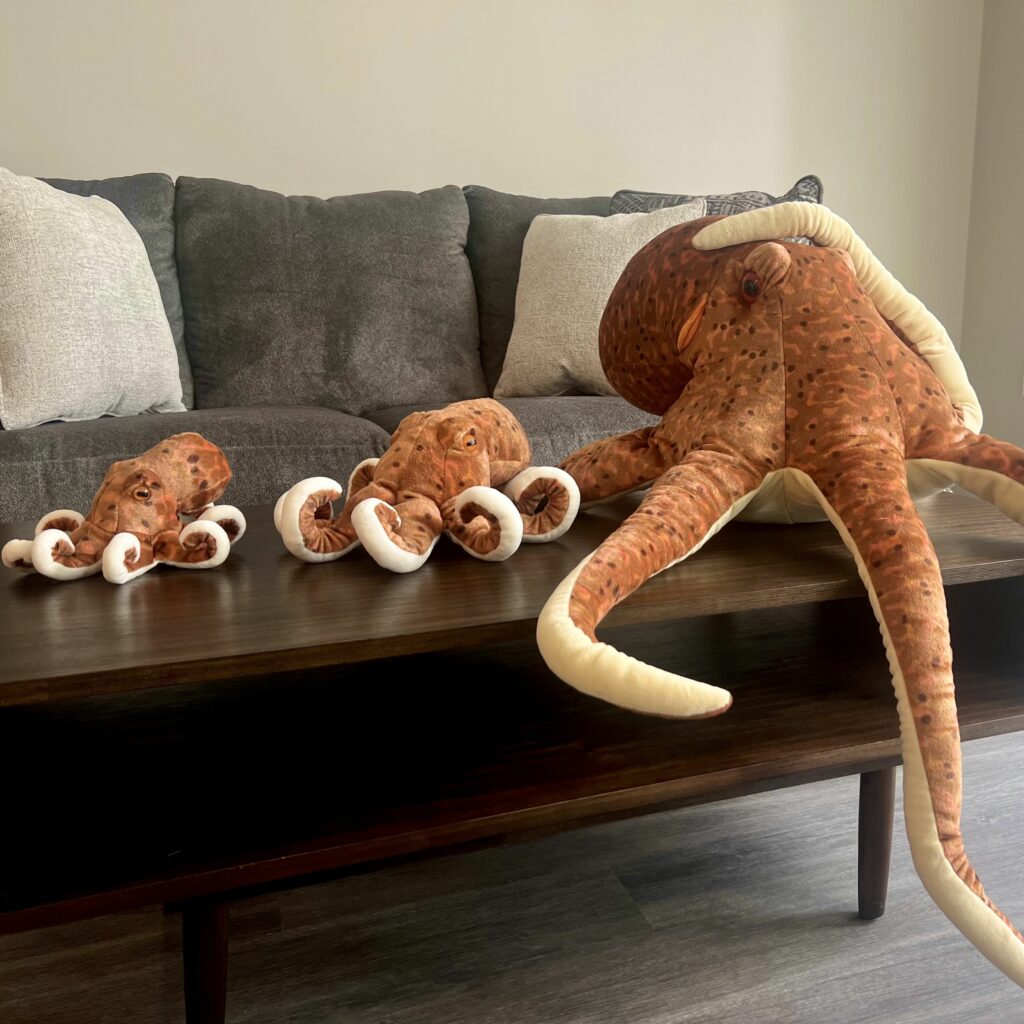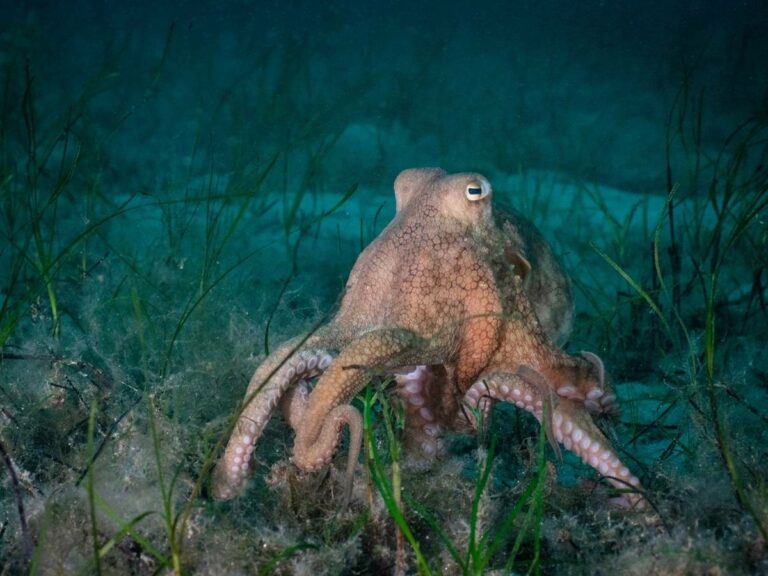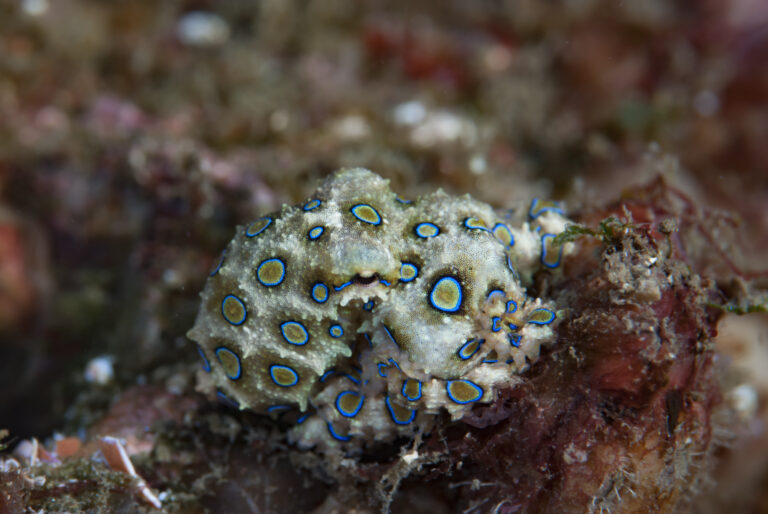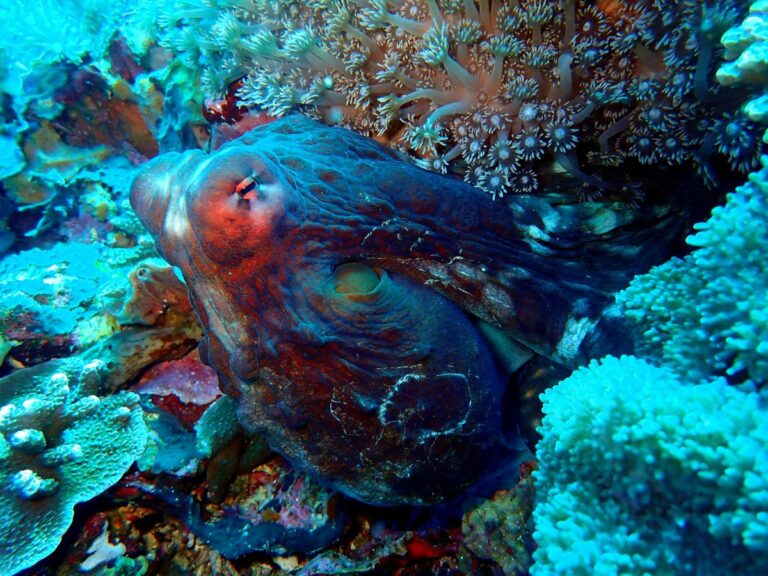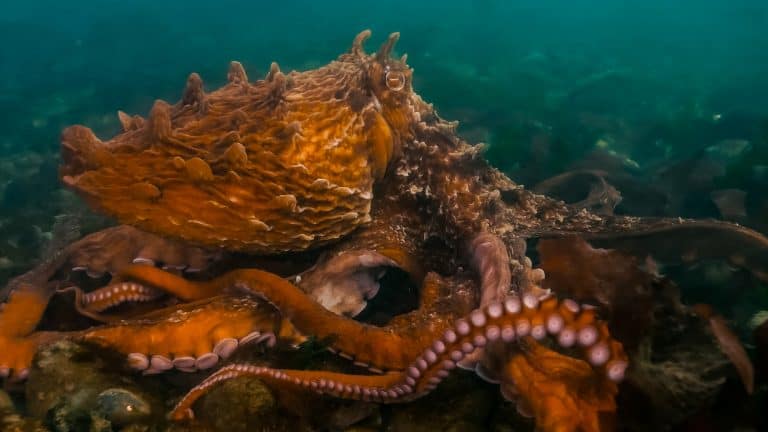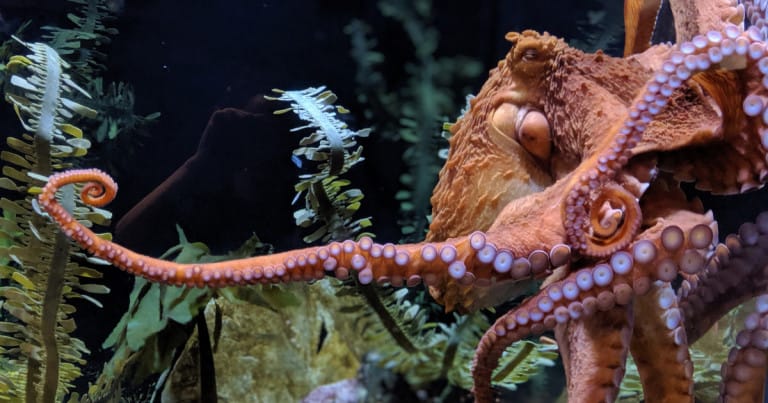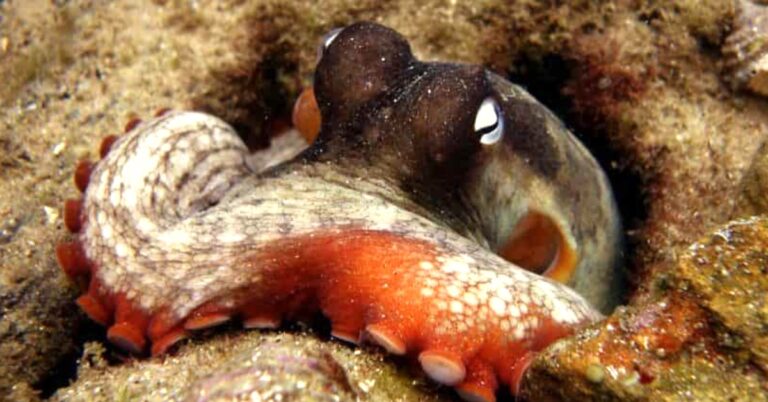What Are An Octopus’ Predators?
From marine mammals to large fishes, there are lots of animals in the ocean that eat octopuses as part of their diet. As a result, octopuses and other cephalopods are an essential part of marine food webs, especially when they’re young. So, exactly what are an octopus’ predators? Let’s find out!
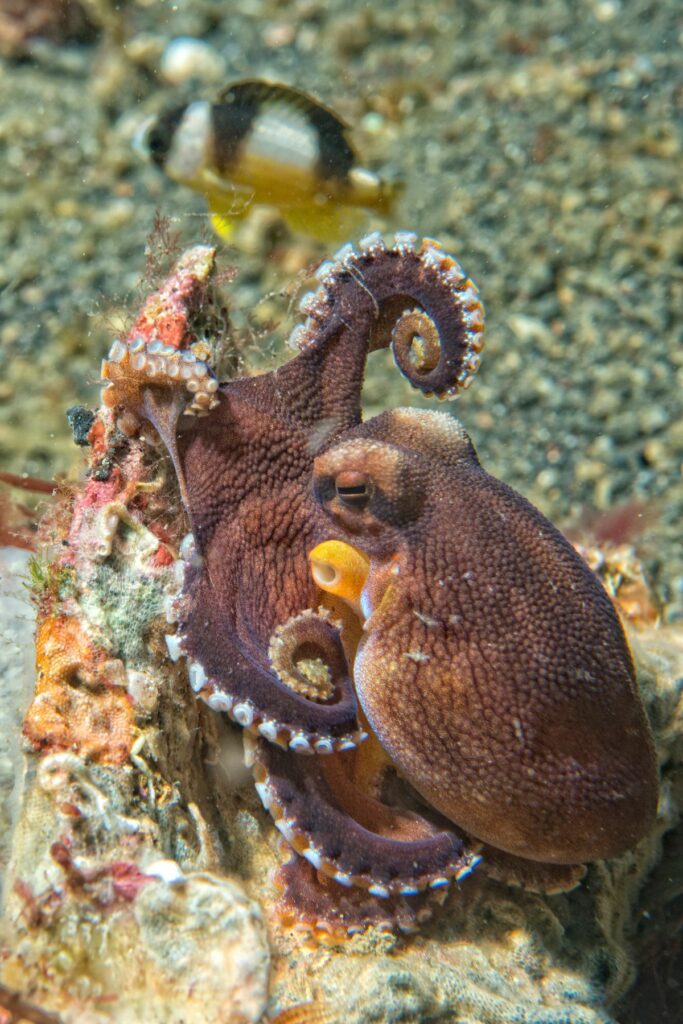
Food webs 101
We’re all cephalopod fans here, so this topic is kind of touchy, but let’s focus less on our favs getting eaten and more on the absolutely essential role octopuses and other cephalopods play in marine food webs!
A food web, like a food chain, describes how energy and nutrients pass from organism to organism within an ecosystem.

In the ocean, believe it or not, most food chains start with sunlight! Seagrasses, seaweeds, and billions of tiny organisms called phytoplankton that lives in the upper, sunlit layers of the ocean all create energy from sunlight.
Animals eat the seagrasses, seaweeds, and phytoplankton, and then other animals eat those animals, and BOOM—you’ve got a food chain.
A food web is a grouping of interconnected food chains that represents the complicated nature of … well, nature.
A critical link in all food chains is zooplankton, typically juvenile forms of animals that spend part of their lives drifting in the ocean. Zooplankton are usually tiny, even microscopic, but they don’t have to be!
Anything that drifts instead of swims is technically planktonic (i.e., sea jellies!). Newly hatched octopus paralarvae qualify as zooplankton, and a LOT of animals eat zooplankton.
Thankfully, baby octopuses grow fast! Pretty soon after hatching, octopuses start moving up the food chain.
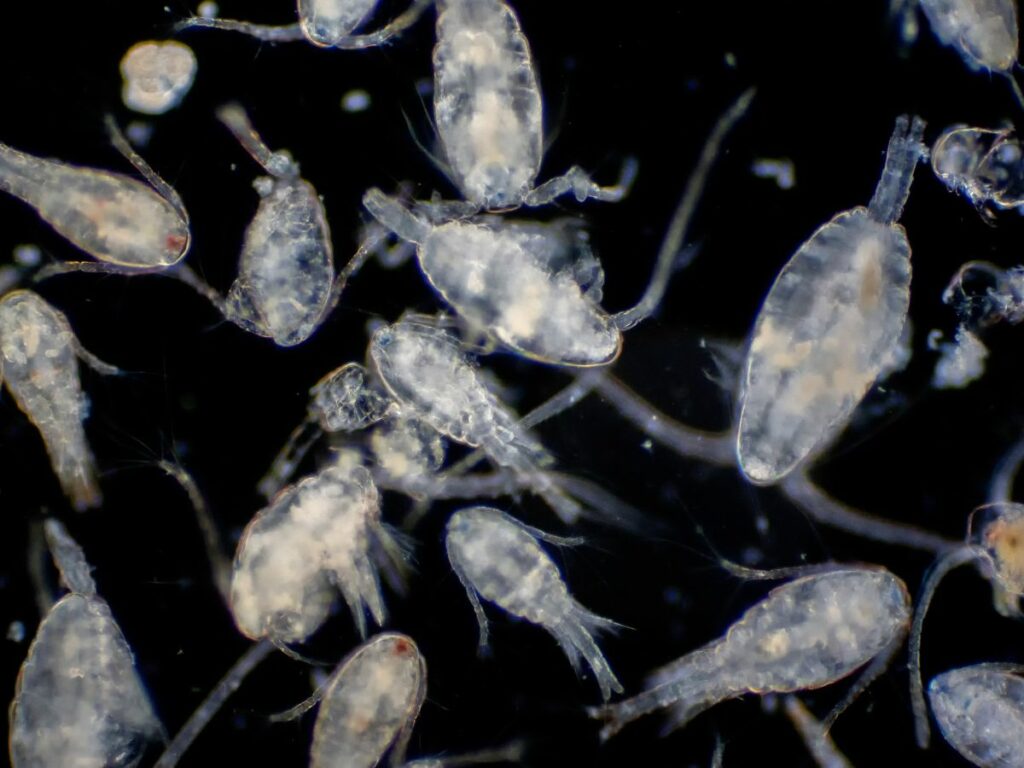
🐙 Octopus Fun Fact
Since octopuses have short lifespans, typically just a few years, they must grow fast—especially the larger octopus species, which can grow to be longer than a full-grown human.
To accomplish this, octopuses eat a whole lot in their early days. In fact, as a subadult, a Giant Pacific Octopus can gain 1% of its body weight every day!
A ceph-isticated diet
Sadly, octopuses are not the top predators in marine ecosystems. They’re preyed upon by a variety of other animals, including large fishes, sharks, sea birds, and marine mammals such as dolphins and seals.
Specific examples of octopus predators include:
- Moray eels
- Groupers
- Orcas
- Albatross
- Penguins
- Sperm whales
- Bottlenose dolphins
- Humans
🐙 Octopus Fun Fact
Hunting octopuses is a dangerous business. There have been reports of severed octopus arms suffocating a predator (like a bottlenose dolphin) even after it’s eaten the rest of an octopus’s body!
Don’t sleep on those suckers, octo-predators!
So, do octopuses have predators, or are THEY the predators?
Octopuses are predators, which means they hunt and eat other animals for food, they’re just not apex predators (animals at the top of the food chain). Octopuses and other cephalopods are a critical part of marine food webs!
If you enjoyed this post about octopus predators, check out this one on what octopuses eat!
If you want to educate yourself some more about all sorts of different cephalopods, take a look at our encyclopedia. Or, what we call it, our Octopedia!
Connect with other octopus lovers via the OctoNation Facebook group, OctopusFanClub.com! Make sure to follow us on Facebook and Instagram to keep up to date with the conservation, education, and ongoing research of cephalopods.
✨Click here to Adopt an Octopus!✨
More FAQs To Read:
- What’s The Difference Between Cuttlefish vs. Octopus?
- Can An Octopus Regrow Its Arm?
- How Do Octopus Breathe?
- Which Direction Is The Front Of An Octopus?
- Is There Such Thing As A Freshwater Octopus?

Bethanie Hestermann is a freelance writer and author of animal-science books, including Zoology for Kids and Marine Science for Kids. She is a contributing writer for OctoNation! You can find all her books at www.zoologyforkids.com/books.
